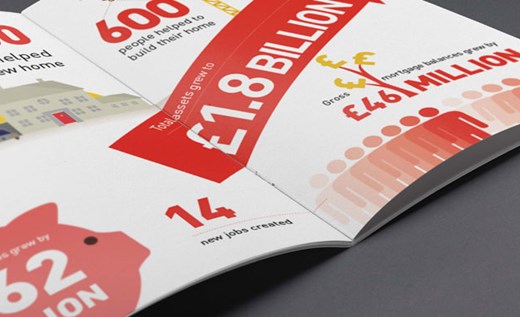
NI Savings Week Guest Blog
Action Mental Health is delighted to once again partner with Progressive Building Society for their fifth Savings Week, this year focusing on the little savings which can be made every day and the positive impact it can have on financial wellbeing.
Action Mental Health is delighted to once again partner with Progressive Building Society for their fifth Savings Week, this year focusing on the little savings which can be made every day and the positive impact it can have on financial wellbeing.
At Action Mental Health, we understand that at the moment, people right across the country are facing huge pressures with the cost-of-living crisis. The impact these worries can have on your mental health is real and can begin to affect people in lots of ways.
We believe that the most important investment you can make is in your mental health. For almost 60 years, we’ve been dedicated to promoting the mental health and wellbeing of people across Northern Ireland.
As part of Savings Week 2022, we have shared our top tips on ways to support your mental health and wellbeing at times when money is on your mind or you are facing financial challenges. Try to develop some healthy habits and ask for help if you need it.
Five Top Tips
1. Do not give up your daily routine
Get up at your normal time and stick to your usual routine. If you lose your routine, it can affect your eating – you may stop cooking, skip breakfast because you're out of routine, or snack instead of eating proper, nutritious meals. Try to go to bed and get up at the same time each day, and perhaps consider writing a list of small tasks you’d like to achieve each week. And as challenging as it can be right now, create a household budget and keep a close eye on it. Before long, you’ll feel more in control of your life admin.
2. Stay active
Daily exercise, both physical and mental, can have such a positive influence on our emotional wellbeing. While it can be difficult, try to dedicate time to seeing your friends, dabble in a new hobby or pastime, and try to keep paying the bills. If you’re not able to do so, seek professional advice from a trusted organisation such as The Consumer Council or Advice NI.
If you find yourself with more spare time, consider trying a new form of exercise or a new sport, exercising and doing some sort of physical activity – even if it’s just a lunchtime walk – is a brilliant way of improving your mood when you're feeling low. If the weather’s against you, swap a lunchtime run for a brain teaser or puzzle. And try reaching for a book instead of your phone.
3. Try not to avoid the issues
When people feel anxious, they sometimes avoid talking to others, and try to hide away from their problems. Some people can even lose their confidence for driving, leaving the house or travelling. If this starts to happen, reaching out for help and seeking the support of family or friends will generally make it easier to face the challenges.
For example, if you're going into debt, get advice on how to prioritise your debts, ask for help and support from a professional and open up to someone you trust. A problem shared is a problem halved.
4. Be aware of negative coping behaviours
For some people with money worries, negative coping behaviours such as drinking alcohol can become a problem. If you find yourself drinking more than usual as a way of dealing with emotions, seek help or speak to someone you trust. Try to replace these negative coping behaviours with more positive activities such as exercise and self-care.
5. Remember, it’s OK to not be OK
We all go through difficult life events and experiences, yet as a society we are very good at helping others around us, and most people are very understanding when a friend or a family member is feeling down or low. We need to remember that it’s ok to seek help when we need that little bit of extra support in our lives.
Please remember there are lots of sources of support and advice for the many challenges we face throughout life, including worries about our finances and our mental health.
If you are worried about your mental health you should speak to your GP. They can advise on appropriate support that is available in your local area. If you are in crisis or distress please call Lifeline on 0808 808 8000, specially trained counsellors are available 24/7.
You can also find other sources of support and information on our services on our website:
There are a range of organisations that can help with money worries. You can find out more on the links below:
https://www.adviceni.net/advice/debt
https://www.uk-debtadvice.co.uk/


Speak to our team today
We’d love to talk you through the mortgage process and help you find a suitable product. For more information or to apply for an account, you can call us, email us, pop into one of our 11 branches. We look forward to hearing from you.



